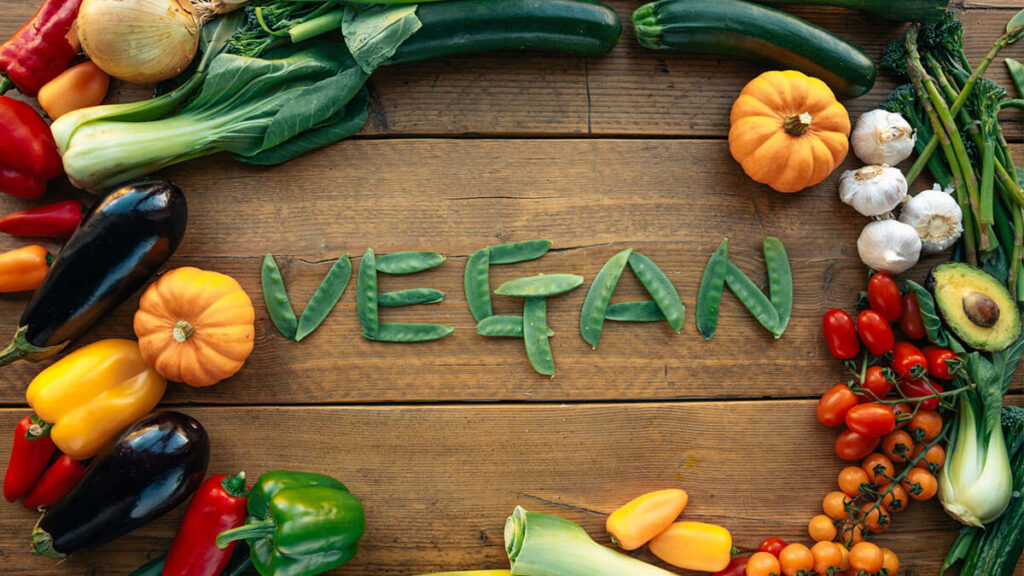Today’s society always looks forward to trending diets, cleanses, and the latest intermittent fasting regimes seen on mind-numbing social media platforms such as Tik-Tok and Instagram. However, there’s no denying that a wholesome plant-based protein lifestyle is highly beneficial. And not just for fueling our bodies with proteins, minerals, and nutrients, but also for our beloved planet’s overall health and safety.
The health consequences of consuming animal versus plant protein could not be further apart. While plant protein offers an extensive array of health benefits, animal products are known to harm our health more than we may realize.
A plant-based lifestyle is excellent for our overall health, but it’s also a natural detox and helps with weight loss. Studies have also proven that it can prevent and even reverse chronic disease. In contrast, research has shown that consuming red meat and processed meat regularly may increase the risk of type 2 diabetes, coronary heart disease, stroke, and certain cancers.
One should not kill a living being, nor cause it to be killed, nor should one incite another to kill. Do not injure any being, either strong or weak, in the world.
BUDDHA
This article will explore the vast differences between animal versus plant protein. And by choosing to live a plant-based lifestyle, you too can benefit not only your health but for the environment. You can do this while not contributing to animal cruelty and keeping a balanced and nutritious lifestyle. Sounds good? Let’s dive in.
Also Read: We Cannot Talk About Food Without Talking About Racism. Here’s Why.

Plant-Based Protein
Did you know that protein forms about 20% of the human body? Proteins are the building blocks of your body. They are the foundation for building muscle, tendons, organs, skin, enzymes, hormones, neurotransmitters, and various molecules that serve many critical bodily functions.
Because your body doesn’t store protein, you must consume enough protein to keep your body functioning. And the great news is that you can gain so much protein from plant-based products that grilling animal parts can remain a thing of the past.
You can get protein from many plant-based sources like tofu, tempeh, edamame, mushrooms, lentils, chickpeas, peanuts, seitan, and the list goes on and on!
If a quick internet search can teach us anything, you can be super creative with any one of these plant-based products to keep your meal plans diverse, exciting and nutritious. Next time you’re online, google “41 Ways to Spice Up Boring Tofu,” You’ll be pleasantly surprised; we guarantee it!
Animal Protein and its Harmful Effects
Animal proteins, such as beef, poultry, pork, eggs, and dairy products, contain all the essential amino acids you need in your diet. It also includes a mixture of vitamins and minerals. However, they’re primarily devoid of fiber and have many unhealthy saturated fats and toxic cancer-causing compounds.
A comprehensive study spanning over two decades found that animal protein increases the risk of premature death by up to 23%. According to the study published online in the American Journal of Clinical Nutrition, “higher intakes of animal protein increased risk of premature death. Researchers followed the diets of 2,641 male participants from the Kuopio Ischaemic Heart Disease Risk Factor Study and compared protein intake with death from chronic disease.
Those who consumed more meat and protein from animal-based sources in place of plant-based sources increased their risk of death from chronic disease by 23%.”
 Colon, prostate, and breast cancer are also some diseases that red meat causes. It’s also relatively high in cholesterol and saturated fats, which clog arteries. Furthermore, red meat contributes to higher blood pressure, which means you’re at higher risk for heart disease and stroke. Sounds harsh? That’s because it is. So what’s the alternative?
Colon, prostate, and breast cancer are also some diseases that red meat causes. It’s also relatively high in cholesterol and saturated fats, which clog arteries. Furthermore, red meat contributes to higher blood pressure, which means you’re at higher risk for heart disease and stroke. Sounds harsh? That’s because it is. So what’s the alternative?
What is Plant Protein?
Plant protein is a blend of natural fibers, antioxidants, complex carbs, beneficial phytochemicals, vitamins and minerals, and fiber are other significant factors. Only plant-based foods contain fiber, which helps to keep the digestive system balanced.
By eating vegan, you’re providing your body protection against illnesses such as heart diseases, cancer, and strokes. A plant-based lifestyle is also 100% cholesterol-free, which your arteries will undoubtedly be grateful for.
A study from 2017 looked at over 70,000 women and found that those with a higher intake of healthy plant-based foods had a lower risk of coronary heart disease. Another 2017 study found that a vegan wholefoods lifestyle could significantly reduce inflammation in people with coronary artery disease. This suggests that a vegan lifestyle may improve healthier heart function.

Plant-Based Meats and Vegan Fast Food Chains
Fast-food chains are jumping on board the vegan train in more exciting news, offering various delicious and nutritious plant-based menu items.
Burger King debuted their now crowd-favorite “Impossible Whopper” burger back in 2019. Many burger-lovers were thus scratching their heads to figure out the difference between the plant-based and cow-filled versions.
The much-loved Mexican restaurant chain “Del Taco” has now added a variety of the popular plant-based substitute “Beyond Meat” to their menu. These include the “Epic Beyond Fresh Guacamole Burrito,” which contains 44 grams of protein, and “Beyond 8 Layer Burrito” which has 27 grams of protein per serve.
Renowned fried chicken chain KFC tested out their “Beyond Chicken” burger back in February 2020 with promising results. Selling out their vegan meal options in just five hours, generating a whopping 2 billion media impressions…No doubt another victory for “Beyond Meat.”
As reported in Forbes in early 2020, “Data from the Plant-Based Foods Association shows that U.S. retail sales of plant-based foods have grown 11% in the past year. Bringing the total plant-based market value to $4.5 billion. Within the next decade, the alternative meat brands category is projected to grow to $140 billion, according to Barclays analysts.”
What to Takeaway
With all this research and evidence to prove our case, plant-based proteins are the natural “high quality” foods we should eat every day for optimal health.


